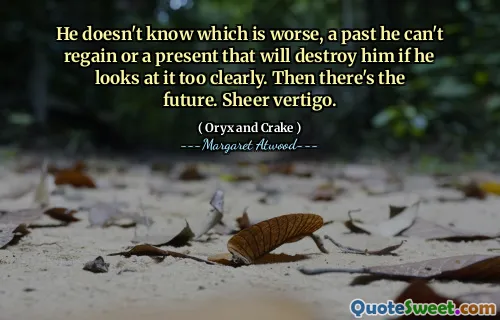You can't buy it, but it has a price," said Oryx. "Everything has a price.
In Margaret Atwood's "Oryx and Crake," the character Oryx highlights a profound truth about the nature of value and desire, stating, "You can't buy it, but it has a price." This quote underscores the idea that many things that are precious or essential in life, such as love, happiness, and fulfillment, cannot be purchased, yet they hold significant worth in our lives. The notion of price here extends beyond money, suggesting that achieving these intangibles often requires sacrifices, efforts, or emotional investment.
This perspective invites readers to reflect on how society assigns value to various elements, revealing that the most meaningful aspects often defy simple commodification. Oryx’s insight serves as a reminder that while material wealth can buy tangible goods, the deeper treasures of life are acquired through experiences, relationships, and personal growth. Hence, everything indeed carries a price, often measured in terms of emotional or personal costs rather than just currency.






